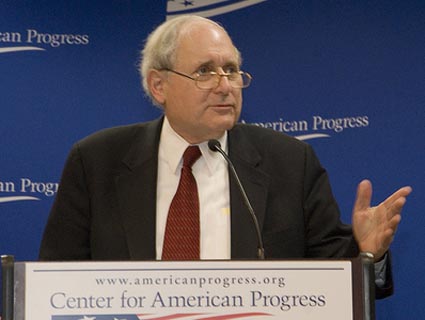
<a href="http://www.flickr.com/photos/foreverdigital/1004203086/sizes/m/in/photostream/">Flickr/foreverdigital</a>
In a closed-door negotiation, top Republican and Democratic lawmakers have killed a ban on detaining American citizens without trial.
The Senate approved the ban, a bipartisan effort led by Senators Dianne Feinstein (D-Calif.) and Mike Lee (R-Utah), as an amendment to the 2013 defense spending bill in a vote last month. But once the House and Senate met to negotiate the differences between their versions of the bill, the ban was scrapped.
Of the four main negotiators on the defense bill, only one of the Democrats, Rep. Adam Smith (D-Wash.), opposes domestic indefinite detention of Americans. The Chairman of the Senate Armed Services Committee, Senator Carl Levin (D-Mich.), believes detaining Americans without charge or trial is constitutional, and only voted for the Feinstein amendment because he and some of his Republican colleagues in the Senate convinced themselves through a convoluted legal rationale that Feinstein’s proposal didn’t actually ban the practice. Both of the main Republican negotiators, House Armed Services Committee Chairman Howard “Buck” McKeon (R-Calif) and Senator John McCain (R-Ariz) believe it’s constitutional to lock up American citizens suspected of terrorism without ever proving they’re guilty.
Civil liberties groups aren’t shedding any tears over the demise of the Feinstein-Lee amendment, either, though. They believed that because Feinstein’s proposal only guaranteed due process for US citizens and legal residents, instead of all persons within the United States, that it was ultimately unconstitutional anyway.
“I was saddened and disappointed that we could not take a step forward to ensure at the very least American citizens and legal residents could not be held in detention without charge or trial,” Feinstein said in a statement to Mother Jones. “To me that was a no-brainer.”
The demise of the Feinstein-Lee proposal doesn’t necessarily mean that Americans suspected of terrorism in the US can be locked up forever without a trial. But it ensures that the next time a president tries to lock up an American citizen without trial—as President George W. Bush previously tried—it will be left up to the courts to decide whether or not it’s legal.















